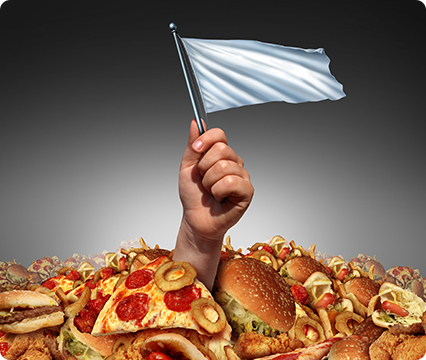Persistent epigenetic reprogramming of sweet taste by diet
CNP Research Summary can be found in the CNP Library Membership


The CNP Diet, Craving, and Food Addiction Research Category explores the psychological, neurobiological, and behavioral interrelations underlying cravings, compulsive overeating, and consumption of highly palatable or ultra-processed foods, highlighting a bidirectional relationship between eating behaviors and dietary intake patterns. Join the CNP Library Membership to learn more.

This 2018 review presents the multifactorial social, neurobehavioral, and metabolic determinants of food intake that influence obesity risk to promote food craving and excessive food intake. The determinants included rewarding foods that stimulate brain reward motivation and stress circuits to influence eating behaviors, as well as stress hormones that hijack the brain’s emotional (limbic) and motivational (striatal) pathways. Sinha (2018) discusses the impact of high-stress levels and trauma, in addition to metabolic alterations such as higher weight, and altered insulin sensitivity, on self-control processes that regulate emotional, motivational, and visceral homeostatic mechanisms of food intake and obesity risk. Also reviewed was the potentially positive interaction between dynamic effects of neurobehavioral adaptations in metabolic, motivation, and stress neurobiology with food craving, excessive food intake, and weight gain. The author highlights key areas that require future investigation to adequately comprehend and address this growing obesity epidemic.
Persistent epigenetic reprogramming of sweet taste by diet
CNP Research Summary can be found in the CNP Library Membership
Snack food intake in ad libitum fed rats is triggered by the combination of fat and carbohydrates.
Random access to palatable food stimulates similar addiction-like responses as a fixed schedule, but only a fixed schedule elicits anticipatory activation
CNP Research Summary can be found in the CNP Library Membership
Longitudinal prospective association between hedonic hunger and unhealthy food and drink intake in adolescents.
Functional brain networks: Unique patterns with hedonic appetite and confidence to resist eating in older adults with obesity
CNP Research Summary can be found in the CNP Library Membership
A narrative review of the construct of hedonic hunger and its measurement by the Power of Food Scale
The effect of hunger and satiety on mood-related food craving
CNP Research Summary can be found in the CNP Library Membership
Causes of emotional eating and matched treatment of obesity
Emotional eating in relation to worries and psychological distress emotional eating in relation to worries and psychological distress amid the COVID-19 Pandemic: A population-based survey on adults in Norway
CNP Research Summary can be found in the CNP Library Membership